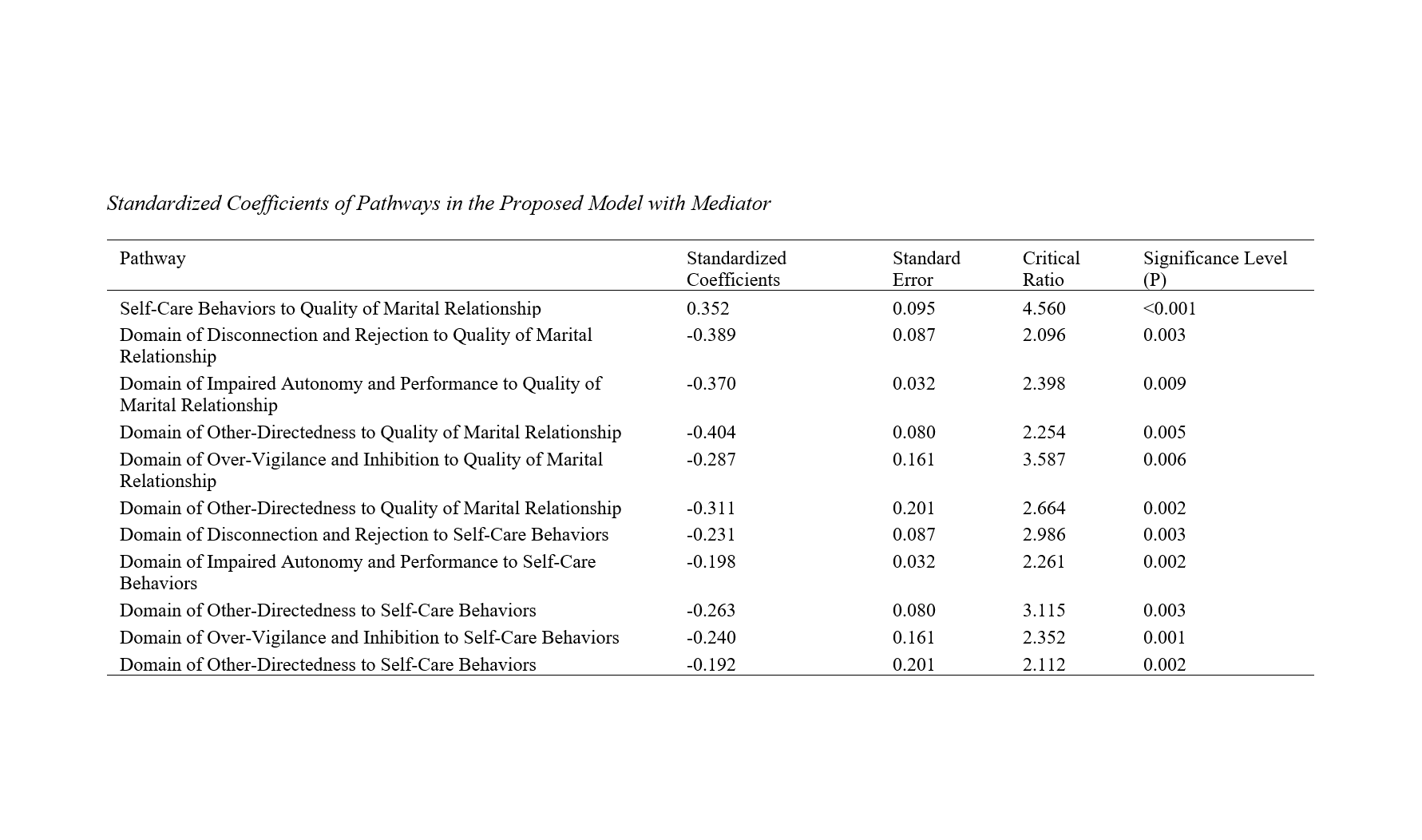Structural Model of Quality of Life Based on Early Maladaptive Schemas and the Mediating Role of Self-Care in Women with Type 2 Diabetes
Keywords:
quality of life, early maladaptive schemas, self-care, diabetesAbstract
Objective: The aim of the present study was to explain the structural model of quality of life based on early maladaptive schemas and the mediating role of self-care in women with type 2 diabetes.
Methods: This research is classified as descriptive-correlational using structural equation modeling. The statistical population included all women with type 2 diabetes in Tehran who visited healthcare centers during 2021. The sample comprised 350 women with type 2 diabetes in Tehran in 2021, selected through convenience sampling based on inclusion and exclusion criteria. Data were collected using the World Health Organization Quality of Life Brief Questionnaire, the Young Schema Questionnaire-Short Form, and the Diabetes Self-Care Activities Questionnaire. Data were analyzed using structural equation modeling and Pearson correlation statistical methods with SPSS.22 and AMOS.22 software.
Findings: The results showed the fit indices were PCFI=0.655, PNFI=0.661, CMIN/DF=2.90, RMSEA=0.089, IFI=0.917, CFI=0.914, and GFI=0.903, indicating a good fit of the proposed model with the data. The highest coefficient (-0.47) was attributed to the pathway from the domain of impaired autonomy and performance to quality of life.
Conclusion: The coefficient of determination for the quality of marital relationship variable in the proposed structural model was 0.889, indicating that exogenous variables could predict 89% of the variations in quality of life, which is a strong prediction.
Downloads

Downloads
Additional Files
Published
Submitted
Revised
Accepted
Issue
Section
License

This work is licensed under a Creative Commons Attribution-NonCommercial 4.0 International License.




















